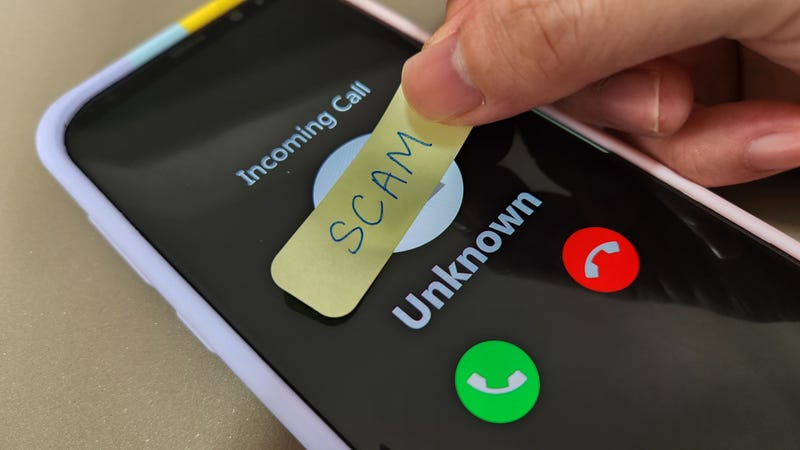
PHILADELPHIA (KYW Newsradio) — The Federal Trade Commission is warning people about imposter scams. A data analyst at the FTC has some advice about what to watch out for to avoid them.
There’s been a dramatic jump in the number of impersonation scams — calls from people pretending to be from companies like Amazon and Microsoft, creating panic and fear among consumers. Last year, victims reported losing $2.7 billion.
“A top theme that we see is a message that looks like a security alert from a bank or Amazon about suspicious activity or an unauthorized charge,” said Emma Fletcher, a senior data researcher.
Fletcher analyzes fraud and scams and says they are becoming more sophisticated. And they target every demographic — not just older citizens, she said.
“A really common theme is that they will make you think there is something wrong with your account.”
She says many times they spoof the phone numbers and text messages of legitimate companies, targeting your money and sometimes personal information.
“They create a fictitious threat and then they position themselves as the people that can make it all go away, but you need to do exactly what we tell you to do to make it go away,” says Fletcher.
“People who call the number in the text or email, or engage — they ultimately end up losing a lot of money while believing they are protecting their money.”
She says they are also using cryptocurrency to get you to move all your money to a bitcoin ATM or something similar to “protect it.”
“There's a lot of kind of tag-teaming going on,” she said. “Say it starts out as Microsoft, and then the supposed Microsoft person tells you, ‘This is much more serious than we thought. We are going to need to send you over to your bank.’ “So then they are claiming to transfer you to your bank.
“And then, from there, your supposed bank may be transferring you to the FTC. And before you know it, you are rushing out to move money, thinking that you are fixing this really major problem that is affecting your identity or your financial future, when in fact this is their ploy to get you to send them money.”
Fletcher says, just take a breath. If you get such a call, make sure to verify the number. Hang up and call the company’s legitimate phone to ensure everything is all right.
“No matter how urgent it seems — ‘It’s your bank,’ ‘It’s your account’ — just find the number for your entity, a number you know is real, and call them.”
Fletcher urges anyone who may have been scammed to contact the FTC, by phone or online at ReportFraud.ftc.gov, so they can track it and pass it to law enforcement.
“Even the people who this happens to thought it would never happen to them,” she said.
“There’s a threat, there’s a scary thing, but we are going to be the people who help you resolve it.”
